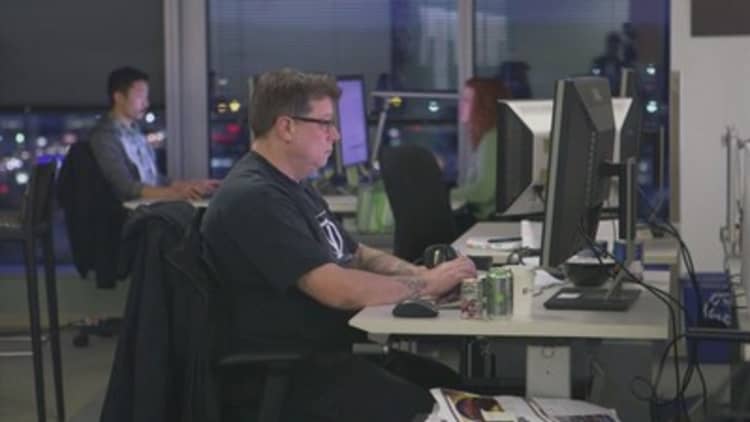
A new study from Adobe shows that internet traffic has reached its peak, meaning the net number of people who will ever access the web is already online. And, with readers just shifting from one site to another, it means that companies may have to rethink their strategies to get more eyeballs.
"We've reached peak saturation where people aren't accessing the internet for the first time," said Becky Tasker, manager at Adobe Digital Insights. "You'll have new net people coming on as people go down, but there won't be another massive growth spurt."
The data are part of Adobe's first Advertising Demand Report, which was released Monday. It was compiled from more than 800 billion visits to 800 North American and European websites on various topics from January 2013 to June 2016.
The study found that 6 out of 10 websites were growing, increasing their traffic by 51 percent on average. The remaining 4 out of 10 were decreasing rapidly, and no website traffic was remaining steady. Retailers that were growing saw an average 17 cents of revenue per visit, 7 percent more than shrinking websites.
"No longer can a website coast thinking that because they are on the internet they are going to win out because they have a presence," Tasker said.
Adobe found that the growing websites were more likely to use brand channels outside their webpage to expand their traffic, like email marketing, paid search ads or social media. They had 2.6 times more traffic coming through social media than shrinking websites, and 1.7 times more traffic via email.
An additional survey of 1,000 U.S. adults showed that 78 percent of consumers liked personalized ads, but a little less than one-third thought the ads were relevant to them. The survey takers felt that they encountered the most interesting ads when using social media, but they were less likely to notice ads when they were doing something with "intent" like watching a video.
In fact, when it came to video ads, more than half said the most annoying thing about them was when there was no ability to skip them, followed by autoplay video/audio and the length of the ad. About half said they would stop watching a video if there was an ad they couldn't skip, with people making more than $50,000 per year most likely to stop viewing the clip.


